Filter by
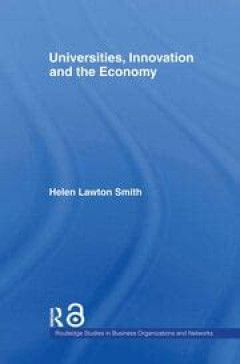
Universities, Innovation and the Economy
Universities, Innovation and the Economy explores the growing importance of universities as key players in the innovation system and their evolving relationship with the economy. The book examines how universities contribute to economic development not only through the education of skilled labor but also through research, technological advancement, and knowledge transfer.
- Edition
- -
- ISBN/ISSN
- 9780415324939
- Collation
- 280 Hal
- Series Title
- -
- Call Number
- 378.103
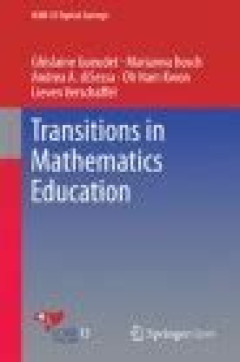
Transitions in Mathematics Education
This book examines the transitions taking place in mathematics education from school to tertiary level, as well as from traditional to modern curricula. It explores how changes in educational systems, social structures, and economic demands affect the teaching and learning of mathematics.
- Edition
- -
- ISBN/ISSN
- 978-3-319-31622-2
- Collation
- 44 Hal
- Series Title
- -
- Call Number
- 510.71

Transforming the Future
This book explores how anticipation—the ability to imagine, evaluate, and prepare for possible futures—can transform decision-making in the 21st century. Developed in partnership with UNESCO, it introduces Futures Literacy as a key capability for navigating uncertainty
- Edition
- -
- ISBN/ISSN
- 978-92-3-100268-7
- Collation
- 301 Hal
- Series Title
- -
- Call Number
- 303.49

Time in Education Policy Transfer
This book examines how time shapes the global transfer of education policies. It introduces seven temporal dimensions—such as timing, pacing, and historical layering—that influence how reforms are adopted, adapted, or resisted across different countries.
- Edition
- -
- ISBN/ISSN
- 978-3-031-82524-8
- Collation
- 250 Hal
- Series Title
- -
- Call Number
- 379
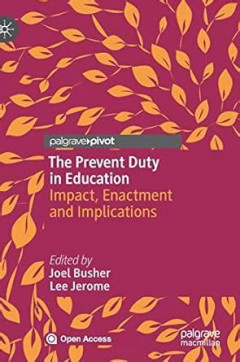
The Prevent Duty in Education Impact, Enactment and Implications
This book offers the first comprehensive analysis of how the UK government’s Prevent Duty—part of its counter-terrorism strategy—has been interpreted and enacted in educational settings. Drawing on empirical research across schools, colleges, and universities, the book explores how educators have understood and responded to the duty to prevent people from being drawn into terrorism.
- Edition
- -
- ISBN/ISSN
- 978-3-030-45559-0
- Collation
- 180 Hal
- Series Title
- -
- Call Number
- 344,082
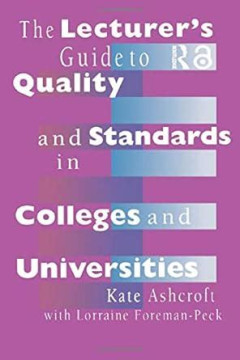
The Lecturer's Guide to Quality and Standards in Colleges and Universities
This guide serves as a practical handbook for lecturers in post-compulsory higher education, combining an entrepreneurial mindset with a strong educational philosophy based on reflective practice. The authors address key components of academic quality and standards, including teaching and learning, student support, assessment and evaluation, curriculum design, resource management, and marketing.
- Edition
- -
- ISBN/ISSN
- 978-0-7507-0338-3
- Collation
- 263 Hal
- Series Title
- -
- Call Number
- 378.1250941

The Contextualisation of 21st Century Skills
This book explores how 21st century skills—such as critical thinking, collaboration, communication, and creativity—are interpreted and applied across various educational contexts worldwide. It highlights the importance of adapting these skills to local cultural, social, and economic settings, emphasizing that a one-size-fits-all approach is ineffective
- Edition
- -
- ISBN/ISSN
- 978-3-031-51490-6
- Collation
- 221 Hal
- Series Title
- -
- Call Number
- 370.113
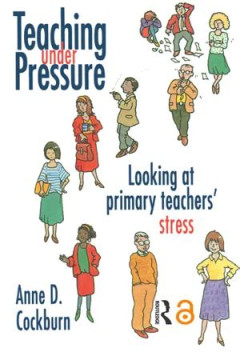
Teaching Under Pressure: Looking at primary teachers' stress
This text is based on the author's research into primary school teachers’ stress. The research has been linked with the author's belief in the need to understand ourselves, our personal and professional situations and how they relate. The resulting book is a practical text designed to address the reader in such a way that they can readily identify with what is being discussed. Furthermore, re…
- Edition
- -
- ISBN/ISSN
- 9780750705042
- Collation
- 169 Hal
- Series Title
- -
- Call Number
- 371.10019
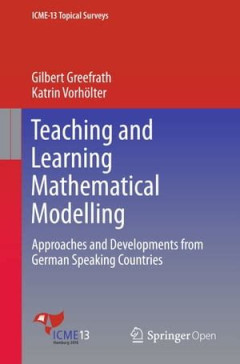
Teaching and Learning Mathematical Modelling
This book examines effective methods for teaching mathematical modelling, a key skill that links mathematics to real-world problems. It explores instructional strategies, classroom practices, and challenges in helping students develop modelling competencies. Aimed at educators and researchers, the book offers practical insights and theoretical perspectives to improve mathematics teaching throug…
- Edition
- -
- ISBN/ISSN
- 978-3-319-45004-9
- Collation
- 49 Hal
- Series Title
- -
- Call Number
- 510.7
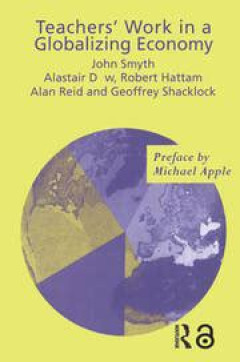
Teachers' Work in a Globalizing Economy
Extended critical case studies provide a tangible working expression of the labour process of teaching, showing how teachers are simultaneously experiencing significant changes to their work, as well as responding in ways that actively shape these processes. For teachers and researchers, this book reveals which processes in the global economy impact and sometimes control the role of the teacher.
- Edition
- -
- ISBN/ISSN
- 978-0-7507-0962-0
- Collation
- 224 Hal
- Series Title
- -
- Call Number
- 370.1
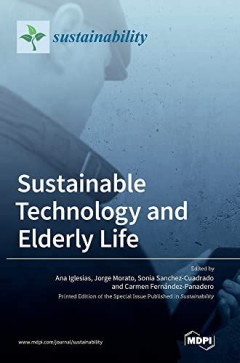
Sustainable Technology and Elderly Life
The coming years will see an exponential increase in the proportion of elderly people in our society. This accelerated growth brings with it major challenges in relation to the sustainability of the system. There are different aspects where these changes will have a special incidence: health systems and their monitoring; the development of a framework in which the elderly can develop their dail…
- Edition
- -
- ISBN/ISSN
- 978-3-0365-4270-6
- Collation
- 132 Hal
- Series Title
- -
- Call Number
- 171.8
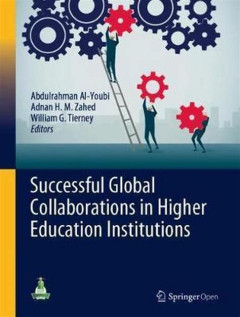
Successful Global Collaborations in Higher Education Institutions
This open access book presents a deep investigation into the manifold topics pertaining to global university collaboration. It outlines the strategies King Abdulaziz University has employed to rise in global rankings, and the reasons chosen to collaborate with other academic and research institutes.
- Edition
- -
- ISBN/ISSN
- 978-3-030-25525-1
- Collation
- 101 Hal
- Series Title
- -
- Call Number
- 378

„SPORT SCIENCE FOR SPORTS PRACTICE, TEACHER TRAINING AND HEALTH PROMOTION”
On behalf of the Baltic Society of Sport Sciences (BSSS), Vytautas Magnus University Education Academy, the Lithuanian National Olympic Committee, and the Lithuanian Olympic Academy, we are honored to invite you to participate in the 12th Baltic States Sport Science Conference, titled “Sport Science for Sports Practice, Teacher Training and Health Promotion”, held on April 25–26, 2019, in…
- Edition
- -
- ISBN/ISSN
- 978-609-467-384-9
- Collation
- 154 Hal
- Series Title
- -
- Call Number
- 796.01
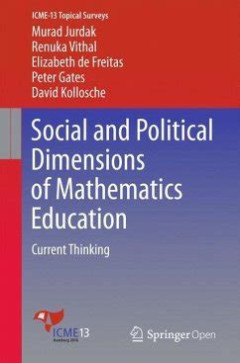
Social and Political Dimensions of Mathematics Education
This book focuses on empirical research in statistics education. It presents an overview of the current state of research and highlights perspectives for the future development of the field. The contributions cover a broad range of topics, including cognitive aspects of learning statistics, the use of technology, teacher education, curriculum development, and assessment. The book also discusses…
- Edition
- -
- ISBN/ISSN
- 978-3-319-29654-8
- Collation
- 43 Hal
- Series Title
- -
- Call Number
- 519.5071
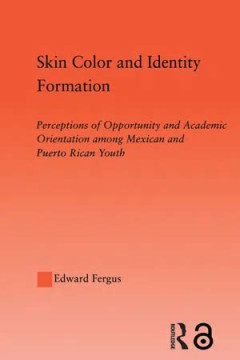
SKIN COLOR AND IDENTITY FORMATION
This study focuses on how skin color influences perceptions of opportunities and academic orientation among 17 Mexican and Puerto Rican high school students. Specifically, it analyzes how students modify—or maintain—their racial/ethnic identification in response to others’ perceptions based on skin tone.
- Edition
- -
- ISBN/ISSN
- 978-0-415-65171-4
- Collation
- 206 Hal
- Series Title
- -
- Call Number
- 373.1829
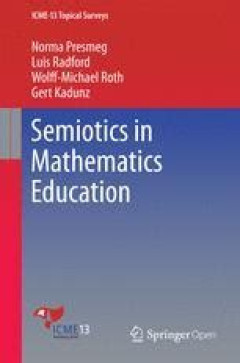
Semiotics in Mathematics Education
This book discusses the role of semiotics—the study of signs and symbols—in mathematics education. It brings together international researchers who examine how meaning is constructed through gestures, diagrams, language, and other semiotic systems during mathematical learning and teaching. The chapters explore a variety of theoretical frameworks, including Peircean and Vygotskian semiotics,…
- Edition
- -
- ISBN/ISSN
- 978-3-319-31370-2
- Collation
- 45 Hal
- Series Title
- Series Editor
- Call Number
- 510.71
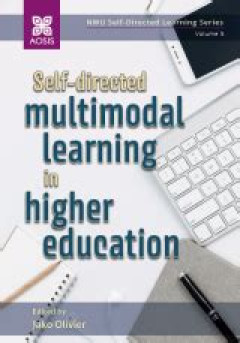
Self-directed in higher education multimodal learning
This book explores how students in higher education can take charge of their own learning using multiple modes—such as text, video, and digital tools. It highlights strategies that promote self-directed learning and examines how multimodal approaches enhance student engagement, autonomy, and academic success
- Edition
- volume 5
- ISBN/ISSN
- 978-1-928523-42-0
- Collation
- 470 Hal
- Series Title
- -
- Call Number
- 371.33
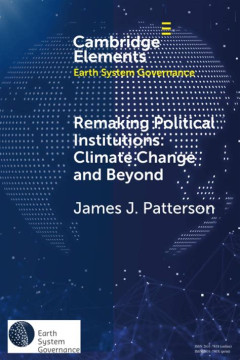
Remaking Political Institutions: Climate Change and Beyond
This Element develops an original analytical foundation for studying institutional remaking and its political dynamics. It explains how institutional remaking can be observed and provides a typology comprising five areas of institutional production involved in institutional remaking: novelty, uptake, dismantling, stability, and interplay.
- Edition
- -
- ISBN/ISSN
- 9781108708425
- Collation
- 98 Hal
- Series Title
- -
- Call Number
- 352.29
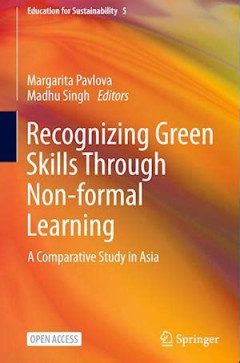
Recognizing Green Skills Through Non-formal Learning
Recognizing Green Skills Through Non-formal Learning discusses how environmentally relevant skills can be developed and validated outside formal education. It emphasizes the role of community programs and informal training in supporting sustainable development and green employment
- Edition
- -
- ISBN/ISSN
- 978-981-19-2072-1
- Collation
- 287 Hal
- Series Title
- -
- Call Number
- 374.26

Protecting the Rights of People with Autism in the Fields of Education and Em…
Fundamental rights to education and employment are essential pathways for the social inclusion of people with autism. This book begins with an overview of international and European legal frameworks that protect these rights—most notably the UN Convention on the Rights of Persons with Disabilities (Articles 24 & 27)—and then offers a detailed examination of domestic legislation, case law,…
- Edition
- -
- ISBN/ISSN
- 978-3-319-13791-9
- Collation
- 202 Hal
- Series Title
- -
- Call Number
- 344.0798

PROBLEMS AND PROSPECTS OF TRAINING IN HIGHER SCHOOL: PEDAGOGICAL, PHILOLO…
The collective monograph is devoted to consideration of the problems and prospects of student training in higher education, namely its pedagogical, philological, psychological and intercultural aspects. The main task of higher education today is personal development, formation of professional and social-communicative competence of students.
- Edition
- -
- ISBN/ISSN
- 978-617-7319-94-7
- Collation
- 156 Hal
- Series Title
- -
- Call Number
- 378.0
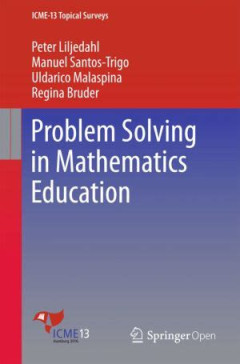
Problem Solving in Mathematics Education
Problem solving in mathematics education has been a prominent research field that aims at understanding and relating the processes involved in solving problems to students’ development of mathematical knowledge and problem solving competencies. The accumulated knowledge and field developments include conceptual frameworks to characterize learners’ success in problem solving activities, cogn…
- Edition
- -
- ISBN/ISSN
- 978-3-319-40730-2
- Collation
- 46 Hal
- Series Title
- -
- Call Number
- 510.76
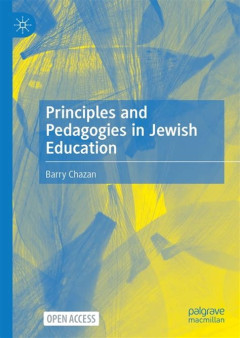
Principles and Pedagogies in Jewish Education
“This book is aimed at improving contemporary educational practice by rooting it in clear analytical thinking. The book utilizes the analytic approach to philosophy of education to elucidate the meaning of the terms ‘education,’ ‘moral education,’ ‘indoctrination,’ ‘contemporary American Jewish education,’ ‘informal Jewish education,’ ‘the Israel experience,’ and ‘Is…
- Edition
- -
- ISBN/ISSN
- 978-3-030-83925-3
- Collation
- 103 Hal
- Series Title
- -
- Call Number
- 296.68
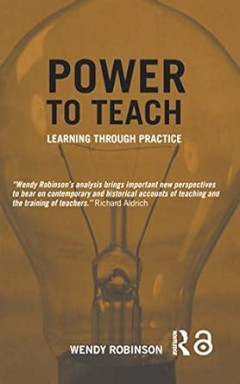
POWER TO TEACH Learning through Practice
: Learning Through Practice by Wendy Robinson highlights the importance of real teaching experience in developing effective and reflective educators. It argues that teaching is not just about content delivery but also about building professional identity and understanding the social context of learning. The book is a valuable resource for education students and teacher trainers.
- Edition
- -
- ISBN/ISSN
- 978-0-7130-0227-0
- Collation
- 169 Hal
- Series Title
- -
- Call Number
- 371.1

Postdigital Participation in Education
This book examines how participation in education is evolving in the postdigital era—where digital technologies are deeply embedded in everyday life. It explores how learners, educators, and institutions navigate new forms of engagement, collaboration, and knowledge production beyond traditional digital divides.
- Edition
- -
- ISBN/ISSN
- 978-3-031-38052-5
- Collation
- 265 Hal
- Series Title
- -
- Call Number
- 371.344
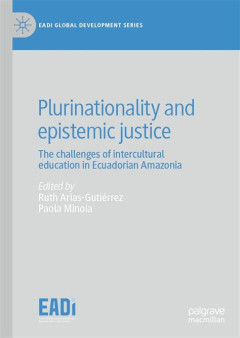
Plurinationality and epistemic justice
This book explores the challenges of implementing intercultural education in the Ecuadorian Amazon. It examines how plurinationality and epistemic justice are addressed in schools, highlighting tensions between Indigenous knowledge systems and formal education practices. The book calls for more inclusive, culturally respectful educational approaches.
- Edition
- -
- ISBN/ISSN
- 978-3-031-58860-0
- Collation
- 222 Hal
- Series Title
- -
- Call Number
- 370.152

Peer review in an Era of Evaluation Understanding the Practice of Gatekeeping…
This open-access volume delves into peer review within academia and the scientific community. While peer review has a long-standing history, recent shifts in higher education’s evaluative culture have diversified its functions, formats, and purposes. The contributors provide both conceptual and empirical analyses of varied peer review practices relevant to scholars and institutions worldwide.
- Edition
- -
- ISBN/ISSN
- 978-3-030-75263-7
- Collation
- 414 Hal
- Series Title
- -
- Call Number
- 001.4
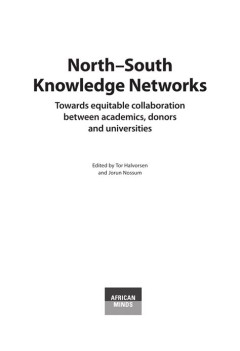
North–South Knowledge Networks
- Edition
- -
- ISBN/ISSN
- 978-1-928331-31-5
- Collation
- 326 HaL
- Series Title
- -
- Call Number
- 001.4091724
- Edition
- -
- ISBN/ISSN
- 978-1-928331-31-5
- Collation
- 326 HaL
- Series Title
- -
- Call Number
- 001.4091724

New Teachers in Nordic Countries – Ecologies of Mentoring and Induction
This book explores how newly qualified teachers in Nordic countries are supported through mentoring and induction. It examines the diverse practices and policies across Denmark, Finland, Iceland, Norway, and Sweden, focusing on the ecological conditions that shape teacher support systems.
- Edition
- -
- ISBN/ISSN
- 978-82-02-69240-7
- Collation
- 203 Hal
- Series Title
- -
- Call Number
- 371.1
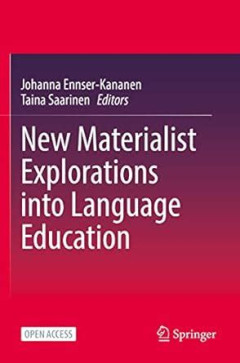
New Materialist Explorations into Language Education
This book explores language education through a new materialist lens, emphasizing the role of non-human elements—such as objects, spaces, and bodies—in learning processes. It challenges traditional human-centered views and highlights how material environments actively shape language education experiences.
- Edition
- -
- ISBN/ISSN
- 978-3-031-13847-8
- Collation
- 191 Hal
- Series Title
- -
- Call Number
- 418
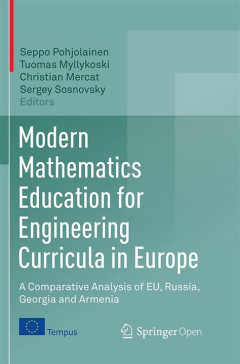
Modern Mathematics Education for Engineering Curricula in Europe
This book compares how mathematics is taught to engineering students across Europe, Russia, Georgia, and Armenia. It highlights two main teaching traditions, analyzes curriculum reforms, and promotes more practical, technology-supported learning methods in higher education.
- Edition
- -
- ISBN/ISSN
- 978-3-319-71416-5
- Collation
- 199 Hal
- Series Title
- -
- Call Number
- 370
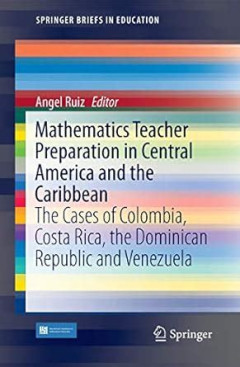
Mathematics Teacher Preparation in Central America and the Caribbean
This book is an excellent synthesis of the initial and continuing preparation for Mathematics Teaching in Colombia, Costa Rica, Dominican Republic and Venezuela, from which comparative analyses can be made that show similarities and differences, and highlight various perspectives.
- Edition
- -
- ISBN/ISSN
- 978-3-319-44177-1
- Collation
- 100 Hal
- Series Title
- -
- Call Number
- 510.71

Life Skills Education for Youth
Life Skills Education for Youth explores the essential competencies that young people need to thrive in an increasingly complex and fast-changing world. The book focuses on practical skills such as critical thinking, decision-making, communication, emotional regulation, and interpersonal relationships. Designed for educators, youth workers, and policy makers, it offers both theoretical foundati…
- Edition
- -
- ISBN/ISSN
- 978-3-030-85214-6
- Collation
- 283 Hal
- Series Title
- -
- Call Number
- 370

International Scientific Conference on Digitalization, Innovations & Sustaina…
This volume presents the proceedings of the International Scientific Conference on Digitalization, Innovations, and Sustainable Development, held in 2023. The conference brought together academics, practitioners, and industry experts to explore the dynamic interrelation between digital technologies, innovative strategies, and sustainable development goals.
- Edition
- -
- ISBN/ISSN
- 978-3-7258-1921-8
- Collation
- 96 Hal
- Series Title
- -
- Call Number
- 338.9

International Comparisons in Learning and Education
This book explores how different countries approach learning and education, offering comparative insights into policies, practices, and outcomes. It analyzes international data and case studies to highlight similarities and differences across educational systems
- Edition
- -
- ISBN/ISSN
- 978-3-031-60958-9
- Collation
- 291 Hal
- Series Title
- -
- Call Number
- 370.9
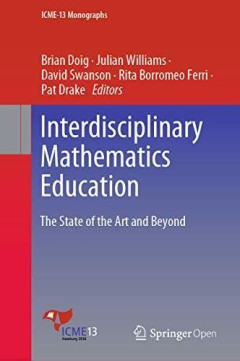
Interdisciplinary Mathematics Education
This book explores the nature and practice of interdisciplinary mathematics education (IME), providing insights into how mathematics can be effectively integrated with other disciplines in school and university curricula. It brings together international perspectives on the theoretical foundations, pedagogical strategies, and empirical findings related to IME.
- Edition
- -
- ISBN/ISSN
- 978-3-319-42267-1
- Collation
- 43 Hal
- Series Title
- Series Editor
- Call Number
- 510.7
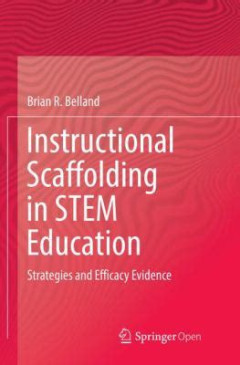
Instructional Scaffolding in STEM Education
This book uses meta-analysis to synthesize research on scaffolding and scaffolding-related interventions in STEM (science, technology, engineering, and mathematics) education. Specifically, the volume examines the extent to which study quality, assessment type, and scaffolding characteristics (strategy, intended outcome, fading schedule, scaffolding intervention, and paired intervention) influe…
- Edition
- -
- ISBN/ISSN
- 978-3-319-02565-0
- Collation
- 150 Hal
- Series Title
- -
- Call Number
- 507.1
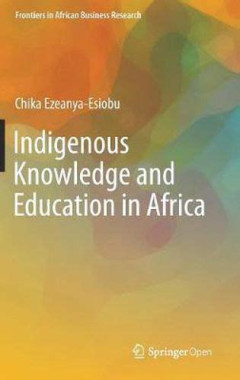
Indigenous Knowledge and Education in Africa
This open access book presents a strong philosophical, theoretical and practical argument for the mainstreaming of indigenous knowledge in curricula development, and in teaching and learning across the African continent.
- Edition
- -
- ISBN/ISSN
- 978-981-13-6635-2
- Collation
- 120 Hal
- Series Title
- -
- Call Number
- 338
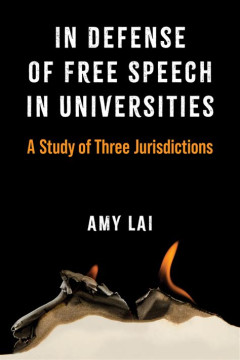
In Defense of Free Speech in Universities
In this book, Amy Lai examines the current free speech crisis in Western universities. She studies the origin, history, and importance of freedom of speech in the university setting, and addresses the relevance and pitfalls of political correctness and microaggressions on campuses, where laws on harassment, discrimination, and hate speech are already in place, along with other concepts that hav…
- Edition
- -
- ISBN/ISSN
- 9780472903795
- Collation
- 308 Hal
- Series Title
- -
- Call Number
- 341
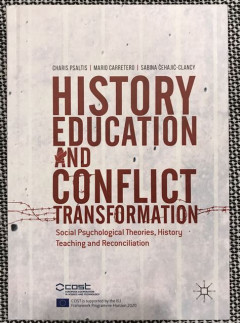
History Education and Conflict Transformation
History Education and Conflict Transformation explores how teaching history can support peacebuilding and reconciliation in post-conflict societies. It highlights educational strategies that promote critical thinking, empathy, and dialogue to transform historical narratives and reduce tensions.
- Edition
- -
- ISBN/ISSN
- 978-3-319-54681-0
- Collation
- 389 Hal
- Series Title
- -
- Call Number
- 907.2
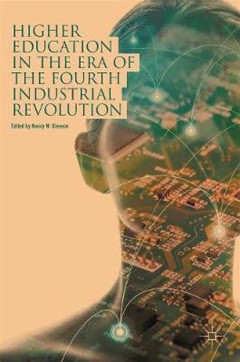
HIGHER EDUCATION IN THE ERA OF THE FOURTH INDUSTRIAL REVOLUTION
This open access collection examines how higher education responds to the demands of the automation economy and the fourth industrial revolution. Considering significant trends in how people are learning, coupled with the ways in which different higher education institutions and education stakeholders are implementing adaptations, it looks at new programs and technological advances that are cha…
- Edition
- -
- ISBN/ISSN
- 978-981-13-0194-0
- Collation
- 238 Hal
- Series Title
- -
- Call Number
- 378
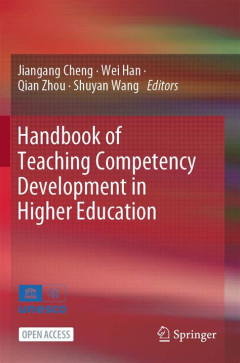
Handbook of Teaching Competency Development in Higher Education
The increasing affordances of new technologies provide both new opportunities and challenges for teaching in higher education. Equipping instructors with the necessary teaching competencies to overcome these challenges in the digital era is imperative. This handbook serves as a reference for higher education stakeholders. It aims to cultivate high-quality instructors, improve higher education q…
- Edition
- -
- ISBN/ISSN
- 978-981-99-6273-0
- Collation
- 165 Hal
- Series Title
- -
- Call Number
- 2300
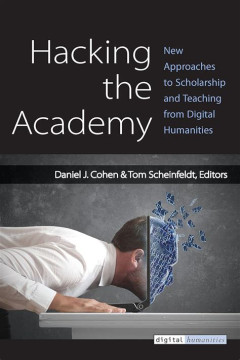
Hacking the Academy
Hacking the Academy explores how scholars are rethinking traditional academic practices through the lens of digital tools, open access, and new modes of collaboration. Born from an experimental crowdsourced initiative, the book brings together contributions from educators, researchers, librarians, and technologists who challenge the conventions of publishing, peer review, teaching, and academic…
- Edition
- -
- ISBN/ISSN
- 978-0- 472- 02947- 1
- Collation
- 177 Hal
- Series Title
- -
- Call Number
- 001.30285

Global Citizenship Education
The book explores how global citizenship education (GCE) prepares students to engage with global issues like human rights, sustainability, and diversity. It examines both theory and practice, highlighting how GCE can empower learners to think critically and act responsibly in a globalized world.
- Edition
- -
- ISBN/ISSN
- 978-3-030-44617-8
- Collation
- 217 Hal
- Series Title
- -
- Call Number
- 323.6

First-in-Family Students, University Experience and Family Life
This book explores the experiences of students who are the first in their family to attend university. It examines their motivations, challenges, and the impact of higher education on family relationships.
- Edition
- -
- ISBN/ISSN
- 978-3-031-34451-0
- Collation
- 307 Hal
- Series Title
- -
- Call Number
- 378.198
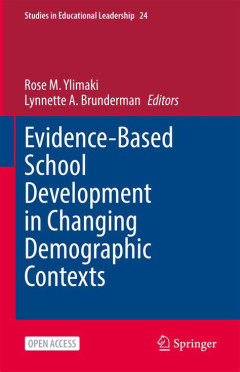
Evidence-Based School Development in Changing Demographic Contexts
This book explores how schools can use data-driven strategies to adapt and improve in response to changing demographic trends. It highlights practical approaches for inclusive, evidence-based development in diverse educational settings.
- Edition
- -
- ISBN/ISSN
- 978-3-030-76837-9
- Collation
- 185 Hal
- Series Title
- -
- Call Number
- 371.2
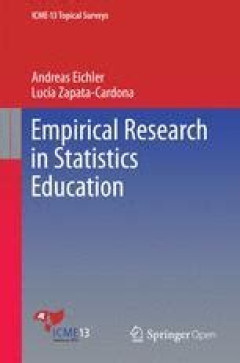
Empirical Research in Statistics Education
Abstract: This book provides a comprehensive overview of empirical research in statistics education, offering insight into how students learn statistics and how educators teach it. The volume covers key topics such as understanding fundamental statistical concepts, the role of technology in statistics learning, and the professional development of teachers. It also explores methodological appro…
- Edition
- -
- ISBN/ISSN
- 978-3-319-38967-7
- Collation
- 44 Hal
- Series Title
- -
- Call Number
- 519.5
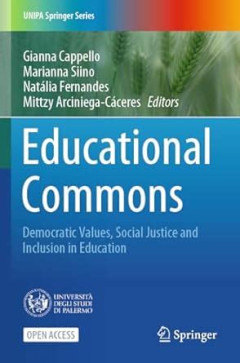
Educational Commons
This open access book presents the final findings from the case studies developed within the Horizon 2020 SMOOTH project “Educational Spaces: Passing through Enclosures and Reversing Inequalities through Educational Commons.
- Edition
- -
- ISBN/ISSN
- 978-3-031-51837-9
- Collation
- 258 Hal
- Series Title
- -
- Call Number
- 379.2
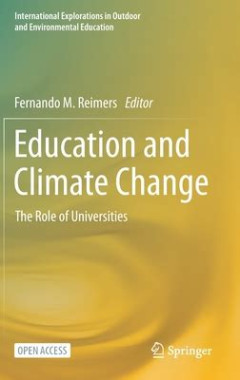
Education and Climate Change
This open-access volume examines how universities can lead climate change education through partnerships with schools and communities. It reviews gaps in current efforts and presents case studies—from the Middle East to Guatemala, Haiti to Pakistan—demonstrating a five‑step process for designing context-specific curricula that foster deep learning and social action
- Edition
- -
- ISBN/ISSN
- 978-3-030-57927-2
- Collation
- 213 Hal
- Series Title
- -
- Call Number
- 333.7071
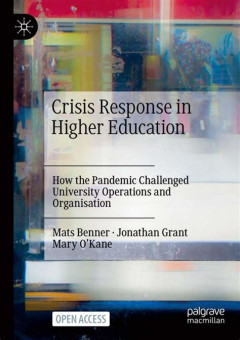
Crisis Response in Higher Education
This book explores how higher education institutions responded to the COVID-19 crisis, with a particular focus on governance, operations, teaching, and organization. Drawing on case studies from multiple countries, the volume examines the immediate and long-term institutional responses to the pandemic and their implications for the future of higher education. It considers how universities manag…
- Edition
- -
- ISBN/ISSN
- 978-3-030-97837-2
- Collation
- 187 Hal
- Series Title
- -
- Call Number
- 378
 Computer Science, Information & General Works
Computer Science, Information & General Works  Philosophy & Psychology
Philosophy & Psychology  Religion
Religion  Social Sciences
Social Sciences  Language
Language  Pure Science
Pure Science  Applied Sciences
Applied Sciences  Art & Recreation
Art & Recreation  Literature
Literature  History & Geography
History & Geography